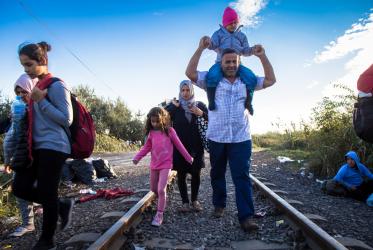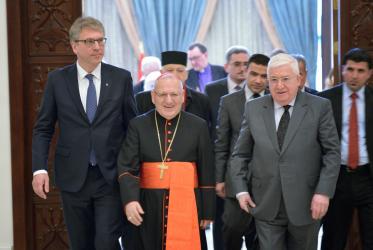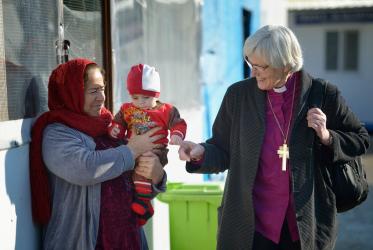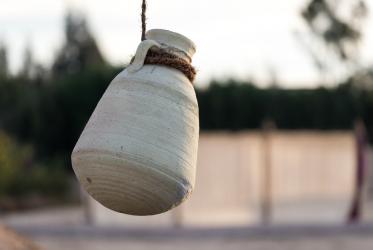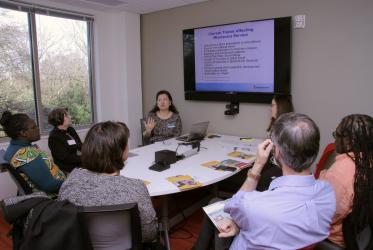Displaying 2121 - 2140 of 3098
WCC general secretary speaks on religion and discrimination
14 February 2017
An interview with the Ethiopian Patriarch, Abune Matthias
14 February 2017
Education for Peace focus of WCC-Roman Catholic meeting
09 February 2017
Church leaders unite their voices against modern slavery
09 February 2017
“When everybody is building walls, the church can build bridges”
30 January 2017
“We can’t go back as long as we know we are not secure”
26 January 2017
Church in German state is a partner for refugees and society
20 December 2016
“Walking Together” project explores pilgrimage traditions
19 December 2016
Being Church in Europe Today: Migration through a theological lens
14 December 2016
‘No Christmas bells in Mosul’ for a third year, says Assyrian priest
14 December 2016


